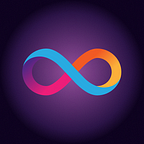Copper, Bronze, Tungsten: Tracing the Internet Computer’s Rapid Progress
The Tungsten release is the third of five milestones that will culminate in the Internet Computer’s full public launch later in 2020.
“The Internet Computer leans heavily into the power of cryptography, introducing new schemes that will surprise and amaze. It unleashes the power of WebAssembly. It reimagines the internet, and it reimagines the very nature of software. The DFINITY Foundation has been expanding and building the Internet Computer in stealth, with total focus. DFINITY was always obsessed with the outer reaches of what is possible. Tungsten kickstarts the release of details about the Internet Computer’s technical architecture and science, and its software code.”
— Dominic Williams, DFINITY Founder and Chief Scientist
Three years of focused research and development have led to the steady progression of the Internet Computer’s public release schedule, heralding a new paradigm for software development. To fully appreciate the scope of this work, it helps to view each of these releases as an act of rebuilding prior eras of computing in decentralized form.
The series started with the Copper release (terminal-based) in November 2019, followed by the Bronze release (desktop web) this past January, and now arrives at the Tungsten release (mobile app development) this month, opening the Internet Computer to third-party developers for the first time.
Read more: The Internet Computer Welcomes Third-Party Developers to Tungsten
Tungsten (aka “Developer Network”) is the third of five release milestones that will culminate in the Internet Computer finally spinning out as an extension of the public internet later this year. Here’s a look at how we got to this point…
COPPER
Copper, the first milestone, introduced our software development kit (SDK) and a new computer language called Motoko, which a growing number of Internet Computer enthusiasts have since been using to build impressive systems and services that will run on the Internet Computer.
The Copper release also marked the formal introduction of the Motoko language. Some developers wondered why an entirely new programming language was necessary. The short answer is that Motoko — created by a DFINITY team led by Andreas Rossberg (co-creator of WebAssembly) — is a language that is optimized for creating tamper-proof software and open internet services for the Internet Computer using WebAssembly (Wasm).
Read more: How Software Developers Build Better on the Internet Computer
Motoko is a modern language designed to be approachable for developers who have a basic familiarity with JavaScript, Rust, Swift, TypeScript, C#, or Java.
BRONZE
Bronze, the second release milestone, was unveiled at the World Economic Forum in Davos, demonstrating a desktop-based social network for professional profiles called LinkedUp (an open version of LinkedIn) that runs on the Internet Computer.
Instead of one node running on a laptop, Bronze had a network of servers in an independent data center in Switzerland running full consensus and P2P/transport layers. Instead of terminal-based apps, canisters built with Bronze store their own front-end, meaning apps can store their state, backend logic, and front-end directly in a canister. And instead of canisters that can only be called from the terminal, canisters in Bronze can send messages to each other, exposing to developers the patterns for inter-canister messaging.
LinkedUp: behind-the-scenes
LinkedUp: front-end
TUNGSTEN
Tungsten, the third milestone, is an even more momentous step forward. The Internet Computer is now running across multiple data centers worldwide, and is opening to third-party developers and teams that are building innovative applications and enterprise systems using the network’s expanding range of developer tools.
For the Tungsten release, DFINITY is demonstrating CanCan, an open alternative to TikTok that is not owned or operated by a corporate or government entity. CanCan was built with less than 1,000 lines of code to showcase the simplicity of building on the Internet Computer. (For more examples that illustrate how quickly developers can write and deploy apps on the Internet Computer, check out the results of our 48-hour internal Tungsten Hackathon.)
Tungsten allows the Internet Computer to jump from desktop web app to mobile development, and challenges conventional assumptions about blockchain computers.
Apply now for access to the Internet Computer’s Tungsten Developer Network at dfinity.org/tungsten.
Join our developer community and start building at forum.dfinity.org.
